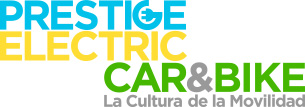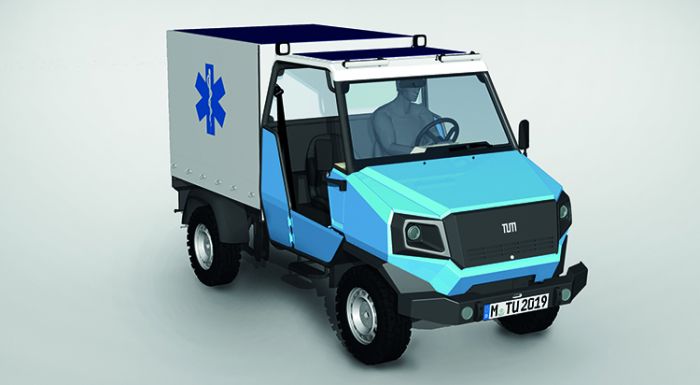An electric car for Africa, custom-designed for the needs of the population there, that strengthens rural structures and helps drive the economy: Scientists at the Technical University of Munich (TUM) and partners have been working intensively towards this goal for four years. They will present their new prototype to the public at the International Motor Show (IAA) in Frankfurt from September 12 to 15, 2017. The aCar is designed for passenger and cargo transportation and is also interesting for the European automotive market.
Mobility is a part of our everyday lives: We transport large loads, commute to work, fly to a faraway country on vacation. However, access to a vehicle of any kind is hardly a given for many people in Africa. For farmers who live far from urban centers, this means that they have no direct access to medical care, education or to political processes. They are dependent on transport contractors who bring their products to the next city for sale in order to make a living. As a result many people are leaving rural areas in search of better living conditions in the city.
"With the aCar we have developed a mobility concept that can solve these problems," explains Prof. Markus Lienkamp, head of the TUM Chair of Automotive Technology. "The aCar is an off-road capable vehicle that is affordable for people there and is capable of transporting heavy loads. The modular structure also allows other uses for example for water treatment."
Four-wheel drive is a must for the roads of Africa, the majority of which are not paved. The team also decided on an electric power train. "An electric drive is not only greener, but is also the better solution in technical terms, since it is low-maintenance and can apply its full torque directly to accelerating from a stop," says Martin Šoltés, who shares leadership of the project with Sascha Koberstaedt at the Chair of Automotive Technology.
The vehicle is primarily intended for transporting passengers and cargo, with a total load capacity of one ton. The battery offers a variety of other possible applications, either as an energy source or as a drive for high-consumption applications, for example as a winch. A number of various moduls have been designed for the cargo bed which can be used on a modular basis. Additional modules can turn the vehicle for example into a mobile physician's office or a water treatment station.
The 20 kWh battery capacity gives the vehicle an electric range of 80 kilometers. The battery can be loaded from an ordinary 220 volt household wall socket within 7 hours. Solar modules mounted on the roof of the aCar gather energy throughout the day. Optional solar collector sheets can be unrolled to significantly increase the amount of solar energy produced for self-contained battery charging.
"Of course we'll have to import high-tech components such as the battery and the electric motors in the beginning," says Martin Šoltés. In future, as many of the aCar's components as possible are to be manufactured on location, in order to strengthen local economies. In order to make the automobile affordable for people on location, the price for the basic vehicle in Africa is to be kept under 10,000 Euros on a long-term basis. "Cast nodes and simple bolted construction enable simple manufacturing processes with very low investment costs," says Prof. Wolfram Volk, head of the Chair of Metal Forming and Casting.
To make sure the idea of the aCar becomes more than just an idea and actually makes it to series production, Sascha Koberstaedt and Martin Šoltés have founded the company "Evum Motors GmbH". The first vehicles are to be manufactured in a model factory in Europe. "We'll have to master all the technical procedures before the car can be made in Africa. Then we can train people from Africa who can in turn pass on their knowledge there."


